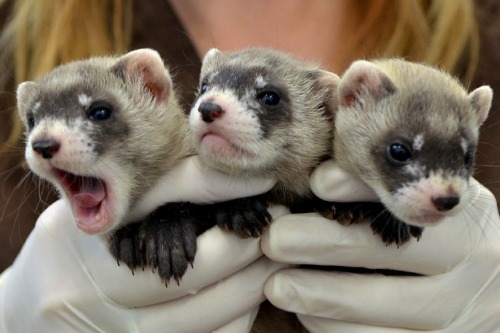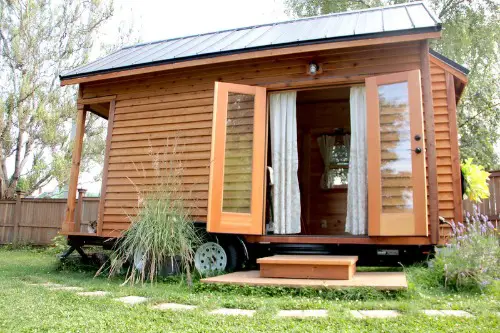1. Pumping Your Own Gas

If you’re in most of the U.S., pumping your own gas is a no-brainer. But head to New Jersey or parts of Oregon, and stepping out to fill your own tank is actually illegal. In New Jersey, it’s been banned since 1949, under a law that was originally about safety and job preservation. Oregon loosened restrictions recently, but some rural areas and counties still require attendants.
This is one of those rules that shocks people moving across state lines. Tourists have been fined or yelled at for doing something totally routine back home. Meanwhile, locals are used to sitting in their cars while someone else does the work. It’s a quirky cultural difference that can catch you off guard fast.
2. Owning a Pet Ferret

Ferrets are legal and beloved in most U.S. states—they’re playful, smart, and kind of like a mix between a cat and a weasel. But if you’re in California or Hawaii, owning a ferret could get you slapped with a fine or even require you to surrender the animal. California bans them due to concerns about escaped ferrets harming native wildlife or becoming invasive. Hawaii, with its delicate ecosystem, bans them for similar reasons.
So, while your New York buddy might have two ferrets running around in sweaters, you could face criminal charges just for having one in your apartment in L.A. It’s wild to think that what’s a cuddly companion in one place is a potential environmental threat in another. And yes, people have actually had pets confiscated at airports over this. Ferret fans have been lobbying for legalization for years, but the laws are still strict.
3. Collecting Rainwater

Want to save some rainwater to water your garden or wash your car? Go right ahead—unless you’re in certain states like Colorado. For years, collecting rainwater there was illegal because of complex water rights laws dating back to the 1800s. It was believed that even rain belonged to someone downstream.
Colorado finally relaxed the law in 2016, allowing homeowners to collect small amounts, but according to the Colorado Sun, it’s still heavily restricted. In other states, it’s not just allowed but encouraged with rebates and tax breaks. So depending on where you are, you could either be eco-friendly or breaking the law. It’s a great example of how water law is still deeply regional.
4. Walking Around Naked in Your Own Home

You might think being naked in your own house is a universal right—after all, it’s your space. But in states like Florida, if you’re visible from the street, you could be charged with indecent exposure. There have been actual cases of people getting arrested because a neighbor saw them undressed through a window. Intent matters, but even unintentional exposure can land you in trouble.
In more liberal areas like Oregon, public nudity isn’t always even a crime, let alone being naked indoors. So the difference here is about how strictly states interpret “lewd behavior,” according to LawInfo. Some consider any visible nudity inappropriate, while others see it as a privacy issue. It really depends on your zip code.
5. Selling Homemade Baked Goods

Whipping up cookies or pies and selling them out of your kitchen is part of the charm of small-town life, right? Not so fast—in many states, selling food made at home without a license can be a misdemeanor. States like Wisconsin require certified commercial kitchens for any sales, even at a farmer’s market. But in places like Texas or South Carolina, “cottage food laws” allow home bakers to operate freely under certain limits.
It all comes down to public health regulations and how states handle food safety. What feels like innocent entrepreneurship in one area could be seen as unlicensed food handling in another. Penalties can include fines or shutdowns, especially if someone reports you. So yes, your grandma’s banana bread might technically be contraband in some states.
6. Bringing Raw Milk Across State Lines

Raw milk is a controversial item—some people swear by it, others say it’s unsafe. In states like Pennsylvania, it’s perfectly legal to buy raw milk straight from a farm. But try bringing that same jug into Maryland or New Jersey, and you could be breaking the law. The FDA even bans the interstate sale of raw milk.
State-by-state rules vary wildly, with some states allowing farm sales, others only permitting herd shares, and some banning it altogether. Advocates argue it’s healthier and more natural, while health officials warn of bacteria like E. coli and listeria. This isn’t just a regulatory gray area—it can be a legal landmine. Even crossing a border with a cooler full of raw milk can be enough to get fined.
7. Driving with a Radar Detector

Speed demons, take note: that radar detector on your dashboard might be legal in your state but totally illegal just one highway away. Virginia and Washington, D.C. ban all radar detectors, even if you’re just passing through. Meanwhile, most other states allow them for private vehicles. But the rules change drastically when you get into commercial driving.
In some states, you can be pulled over just for having a radar detector visible, even if it’s not turned on. That tiny gadget could get you a hefty ticket or have your device confiscated. So if you’re road-tripping, double-check the laws before you cruise with one. What helps you dodge a ticket in one place could land you with a bigger one in another.
8. Using Recreational Marijuana

In states like Colorado or California, buying weed is as normal as picking up a bottle of wine. But in places like Idaho or Kansas, even having a small amount can mean jail time. Recreational marijuana is still completely illegal in many states, despite growing national support for legalization. The federal government still classifies it as a Schedule I drug.
This creates some strange legal patchworks—especially if you live near a border. It’s not unheard of for people to cross state lines with legal weed and get arrested just minutes later. The difference in laws isn’t just about possession either; growing and selling are punished differently everywhere. It’s a reminder that cannabis is still a legal minefield.
9. Flipping a Mattress on Your Car Roof

It sounds harmless enough—tie down a mattress and drive it home. But in states like Alabama, if it’s not secured properly, it could lead to a reckless driving charge. Meanwhile, other states might only give you a warning or a small ticket. In some places, it’s only illegal if the mattress actually flies off and causes a problem.
Different states have different standards for what counts as a “secured load.” In California, for example, you’re required to use proper tie-downs, or you could be fined up to $5,000 if it leads to damage. What seems like common sense in one state is a legal risk in another. So your DIY delivery job might come with unexpected legal baggage.
10. Drinking in Public

In New Orleans, it’s totally normal to walk down Bourbon Street with a cocktail in hand. But try the same thing in Salt Lake City, and you’ll likely be stopped by police. Public alcohol consumption laws vary dramatically between states—and even between cities. In many places, having an open container in public is a misdemeanor offense.
It’s one of those things where local culture deeply influences enforcement. In tourist-heavy cities like Las Vegas or Savannah, open container laws are often relaxed. But in more conservative areas, even sipping a beer at a picnic could get you fined. Always check local ordinances before cracking one open outside.
11. Living in an Off-Grid Tiny Home

Living simply in a tiny home off the grid is the dream for a lot of people. But in states like Connecticut or New York, it’s not always legal if your setup doesn’t meet residential building codes. Things like lack of plumbing, septic systems, or a permanent foundation can make the home “noncompliant.” Meanwhile, states like Colorado or Tennessee are more relaxed about alternative housing.
Zoning laws are often the culprit here—they’re complex and very localized. So while your 200-square-foot home might be celebrated in one place, it could be forcibly removed in another. People have even been fined or evicted for living in what they thought was a legal space. It’s a case of lifestyle clashing with outdated regulations.
12. Releasing Balloons Into the Sky

It might seem like a sweet way to honor someone or celebrate an event, but releasing balloons is actually illegal in several states. In places like Virginia, Connecticut, and California, you can be fined for intentionally releasing balloons due to environmental concerns. Birds, marine life, and power lines often suffer the consequences. In other states, though, it’s still a common part of celebrations.
This is a law that’s catching on as environmental awareness grows. You could be fined up to $100 per balloon in some places. Meanwhile, a balloon release might be part of a school ceremony just a few states over. It’s one of those cultural practices undergoing legal transformation.
13. Carrying Brass Knuckles

Brass knuckles are often considered weapons, and in many states, carrying them is a felony. But in others, like Texas, they’re completely legal to own and carry. The laws are tied to definitions of concealed weapons and intent to harm. Some states ban them entirely, while others consider them a form of self-defense.
You could be arrested for having a novelty keychain in one state but praised for self-protection in another. It’s a good example of how weapon laws are anything but uniform. Even if you have no intent to use them, simply possessing them can land you in trouble. So yes, that edgy accessory could be criminal.
14. Tattooing Without a License

Your buddy in one state might give great stick-and-poke tattoos from their kitchen—but in others, that’s a crime. Tattooing without a license or outside of a licensed facility is illegal in many places. States like South Carolina and Oklahoma have cracked down hard on underground tattooing. But in some rural areas, enforcement is looser or nonexistent.
These laws are in place mostly for public health, to prevent infections and the spread of diseases. But they also reflect how seriously different places take tattoo culture. In one state, it’s art; in another, it’s illegal body modification. Always know your local rules before you break out the ink.
This post 14 Things That Are Normal in One State and Criminal in Another was first published on American Charm.


